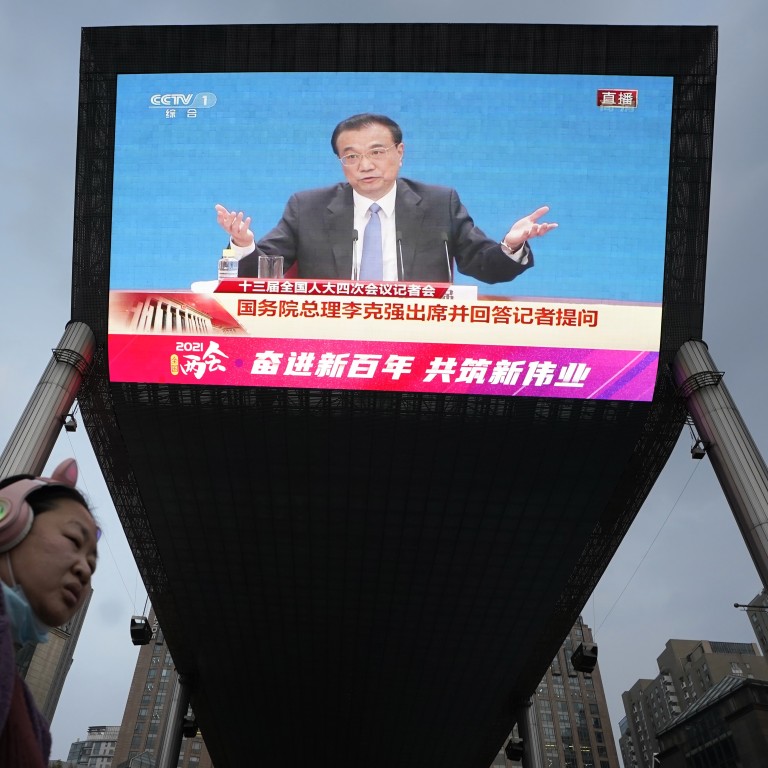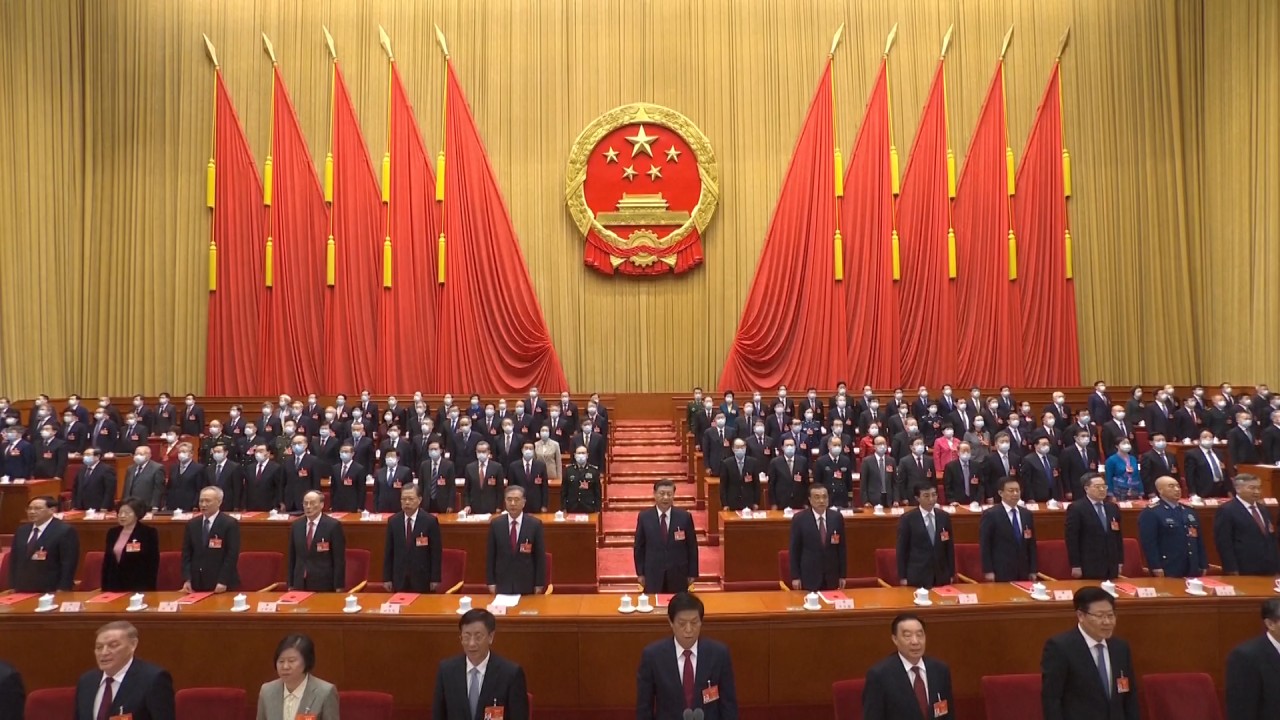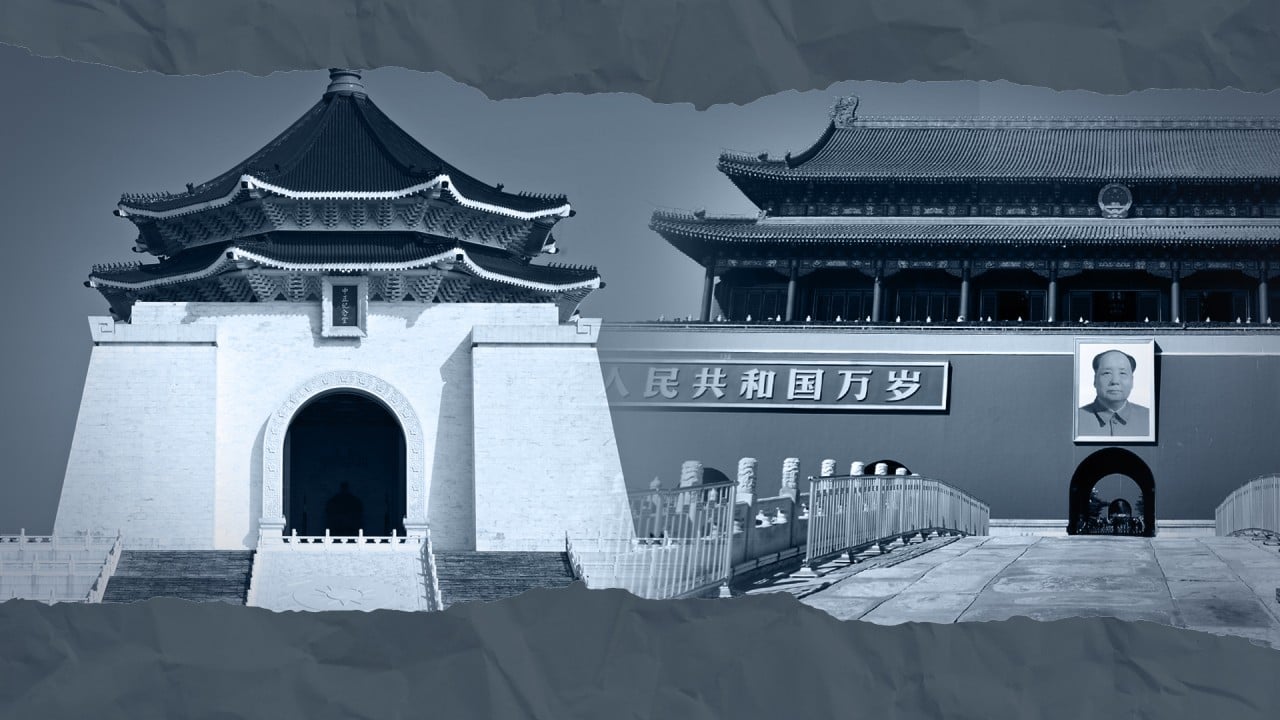
Li Keqiang says Taiwan’s politicians welcome for talks if they accept there is ‘one China’
- Premier reiterates that ‘1992 consensus’ should be basis for dialogue and says Beijing ‘will continue to promote peaceful development of relations’
- Taipei says it should ‘take note of the mindset of the Taiwanese people and refrain from using political terms to hold back amicable interaction’
Li said any Taiwanese political party or politician was welcome to discuss cross-strait relations with Beijing provided they did so under the one-China principle and the 1992 consensus. The premier was the only senior leader to publicly comment on Taiwan at this year’s National People’s Congress session.
“We will continue to promote the peaceful development of cross-strait relations and the reunification of the motherland, and we oppose any form of Taiwan independence and foreign interference into Taiwan affairs,” Li said.
He added that Beijing would continue to offer favourable policies to encourage Taiwanese businesses to seek opportunities on the mainland.

01:49
China's National People's Congress closes annual session
But in Taiwan, Chiu Chui-cheng, vice-chairman of the Mainland Affairs Council, said Taipei did not accept the 1992 consensus.
“We call on the other side of the Taiwan Strait to take note of the mindset of the Taiwanese people and to refrain from using political terms to hold back amicable cross-strait interaction,” Chiu said.
Beijing-friendly opposition party the Kuomintang called for a “reversal of hostility”.
“The two sides need to have more friendly discourse to create more positive thinking,” KMT spokeswoman Angel Hung said. “We believe continuing dialogue and a reversal of hostility is the right path … [for] peace and prosperity.”
Taiwan issue, risk of conflict loom large for Beijing’s political elite
Beijing has vowed to bring the island under its control, by force if necessary. It has stepped up pressure on the self-ruled island, including by poaching its diplomatic allies and sending People’s Liberation Army bombers into Taiwan’s airspace.

10:22
Why has the relationship between the Chinese mainland and Taiwan taken a turn for the worse?
“The Chinese government has no room for compromise on the issue of Taiwan, and also no room for concession,” he said. “We urge the new US administration to be fully aware of the sensitivity of the Taiwan issue … and completely change the previous government’s dangerous practices of ‘crossing the line’ and ‘playing with fire’.”
Lev Nachman, a visiting scholar at National Taiwan University, said Li’s remarks failed to acknowledge the stance of the island’s ruling Democratic Progressive Party.
Li says China will continue to work with WHO on Covid-19 origins
“When they insist on the one-China principle and the 1992 consensus as conditions for dialogue, those are things that the Kuomintang are mostly OK with, which is why the KMT and the mainland could have dialogue when the KMT was in power,” he said.
“Even if Tsai Ing-wen were to acknowledge the 1992 consensus there would still likely be no dialogue because the DPP is forever posed [by Beijing] as a secessionist, pro-independence force.”
Taiwan and other hot-button issues will likely be on the discussion table in Alaska next Thursday when US Secretary of State Antony Blinken and national security adviser Jake Sullivan are expected to meet Yang Jiechi, China’s most senior foreign policy official, and Foreign Minister Wang.
Additional reporting by Lawrence Chung


